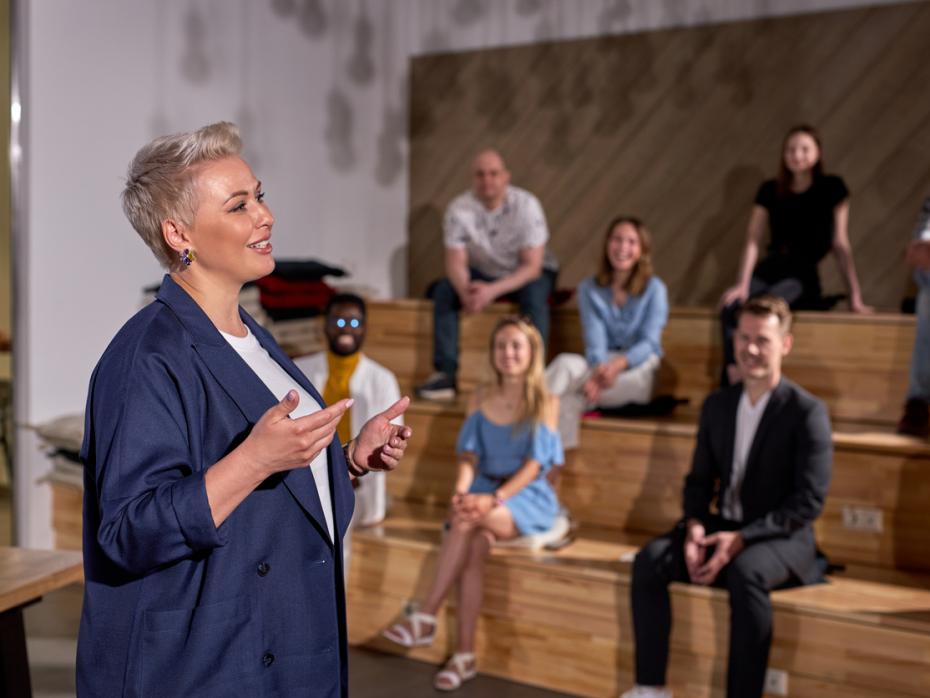
How to be visible as an academic
You may also like
Career development involves enhancing skills, knowledge and expertise to promote professional growth and achieve specific career goals. In a higher education context, colleagues are expected to take on leadership, citizenship and administration roles, excel in research and teaching activities and mentor and impact others in their discipline and wider society. The practice of upshifting, in which academics are expected to work at a higher grade without any formal recognition to further their careers, is also common. Yet, even if one does all the “right” things, career progression is not guaranteed. Many colleagues I’ve spoken to have said that in addition to professional growth and development, one also must be visible.
When I run LinkedIn for Career Development workshops, a common theme usually emerges. Colleagues want to feel valued and seen, but they want to curate their visibility in a manner that is dignified and doesn’t feel narcissistic. Below I outline several steps for formulating that positive kind of visibility for career development and beyond.
Get to know your strengths and weaknesses
Understand your strengths and weaknesses and then try to use your strengths to your advantage. For example, if you are an extrovert, use your skills to network and build communities. If you’re an introvert, write articles and thought leadership pieces. If you are an ideas generator who might quickly lose interest in projects, try to surround yourself with people who are completer-finishers, as they will help you to see projects through. If you have a passionate creative nature, but scheduling and time management are not your strong suit, consider making good use of the latest technology to better organise your calendar and spend more time in the creativity mode. You can schedule posts on LinkedIn and use apps such as Calendly to manage appointments.
Leverage all opportunities
Try to create several visibility opportunities out of each project. For example, if you published a paper, you could turn this into a university blog post, a LinkedIn article and a LinkedIn post around “how to do this kind of research” or “how to publish this type of work”. Then, you can host a thought leadership webinar on the same topic.
Decide what you want to be known for
Even if you don’t have a portfolio career, the nature of an academic job itself means a multi-profile work life. There is teaching, research and scholarship, curricula development, education leadership, outreach and engagement and much more. Among all your interests and talents, decide what you want to be known for. When doing this, consider the following:
- What is your area of expertise?
- What are you good at and what are your innate skills and abilities?
- What are the latest developments in your field or domain that you can use to demonstrate your expertise?
- Finally, what are your values and passions?
For example, you may be an AI-curious educator, or societal impact researcher, or a career development expert. Ask your colleagues and friends, as they may tell you what you are already known for in personal and professional circles.
Although what you’re known for does not need to define who you are, it is better to have one or two themes in mind so that your professional brand is clear.
- Resource collection: Is your academic career cleared for take-off?
- Prepare for promotion: how to develop a strategy for success
- How to write an academic CV: dos and dont's
Connect and grow your network
LinkedIn is a very useful platform for connecting with new and old colleagues. At every event or workshop you attend, aim to meet one or two new colleagues. Connect with them on LinkedIn to expand your network and stay up to date. When reaching out, just add a note to say it was nice to meet them at the event and it would be great to stay in touch.
Similarly, if a new contact reaches out to connect, it's important to respond with graciousness. You might accept the request and reply to their message with something like this: “Thanks for connecting. Great to meet you, too.”
Get visually visible
Conventional wisdom says that a picture is worth a thousand words. So if you feel comfortable, get visually visible. For example, upload your profile picture on LinkedIn and on your university’s website and intranet. Add a personal touch to your work email signature. For example, you could add your latest publication to the bottom of your signature or a quote that you find particularly inspiring.
Ask a colleague to take a picture of you while you’re presenting at a conference. Then submit it to a school newsletter if you have one and use it to create a LinkedIn post about the event.
Be strategic
Of course, not everything you do must be spotlighted. Constantly adding a layer of visibility can feel exhausting and take up a lot of energy. So, be strategic about curating what gets visible. This is linked to what you want to be known for.
Attending a big research conference could be a central piece of content on LinkedIn that you can create three pieces of content from:
- A key takeaway
- Your insights into the future of the discipline based on presentations
- Some of your experiences as a presenter.
Remember to share gratitude to the organisers, too.
And don’t be afraid to repeat yourself. An old story to you can be new to someone else, so re-enforce the message of what you want to be known for.
Think about it as if it was your duty
Try to reframe visibility work as an obligation. Place importance on presenting yourself as a role model and normalise assertiveness and success. This is very important for women, especially women of colour. Your visibility may even inspire others, so bear this in mind.
I hope that more colleagues can use this advice to start feeling more confident about increasing their visibility to aid their career progression.
Rushana Khusainova is a senior lecturer in marketing at the University of Bristol.
If you would like advice and insight from academics and university staff delivered direct to your inbox each week, sign up for the Campus newsletter.




